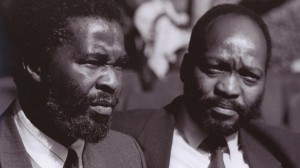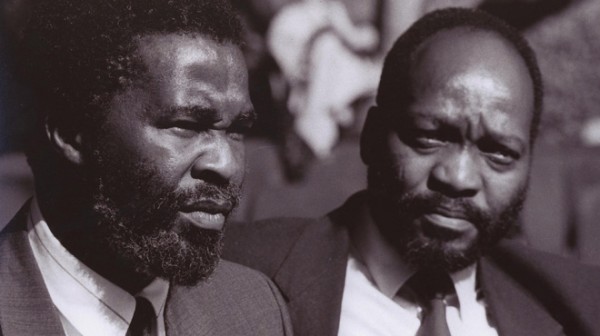
Thabo Mbeki and Jacob Zuma built the ANC party to banish racism from South Africa’s government.
The Godwin-Ternbach Museum at Queens College hosted a screening of the documentary “Behind the Rainbow” on March 16 as part of the Year of South Africa.
Jihan El-Tahri directed the documentary, which was released in 2009. El-Tahri, who is Lebanese, is a producer and news correspondent for Reuters.
“Behind the Rainbow” shows the reality of life in South Africa after apartheid. The film chronicles the political history of the African National Congress party that rose to power after apartheid.
In 1994, after South Africa’s first democratic elections, ANC came to power.
The first challenge for the party arose when they debated how to properly purge the governmental ranks of the ruling oppressors. Some, like Thebo Mkaki, sought to offer whites a “Sunset Clause” of five years to continue ruling so as not to ruin the governing structure of the country and to build trust between the blacks and whites.
“Because they are fearful of ANC taking over, the sunset clause was to cement [the ruling whites] governing structure and build trust,” Mbeki said.
Others sought to set up a ruling government of ANC members so they can get started on state building.
“It was a tactical argument whether to implement the sunset clause. But if we do the clause, it would seriously limit our ability to transform South Africa,” Sue Rabkin, of the ANC Reorganization Committee, said.
After eventually gaining full control of government, the ANC began to transform the economy to adapt to the influx of blacks into the workforce. As a result, gross domestic product and per capita income doubled between 1995 and 2005.
However, the film’s focus is the interplay between the two main leaders of the party, Thabo Mbeki and Jacob Zuma. Set in the 2009 elections that brought Jacob Zuma to power, the film shows how this feud came about and its consequences for the country.
Mbeki and Zuma became the two original leaders in the party after Mandela stepped down. But ideological differences, specifically on different domestic and foreign policies, led to a growing rift between them.
In 2005, after months of mudslinging between them, Mbeki relieved Zuma of his then-current post of Deputy President. This angered the civilians, who saw the fighting as a waste of time distracting from the real problem of poverty.
“We didn’t fight apartheid in order to have apartheid-like behavior of smearing people,” Blade Nzimande, General Secretary of the Communist Party, said.
At the 2007 party convention, both Zuma and Mbeki were nominated for the presidency. After much wrangling threatening to engulf the party in a civil war, Jacob Zuma emerged as the party’s sole nominee.
Bitter feelings still remained, however, and prevented the ANC from continuing to implement desperately needed social welfare reforms. This is especially important for residents of the outlying townships, where violent protests erupted over this very issue.
“Why are people nostalgic about the struggle days when freedom is so good? Because they cannot eat freedom,” Victor Moche, a member of the South African Secret Service, said.












